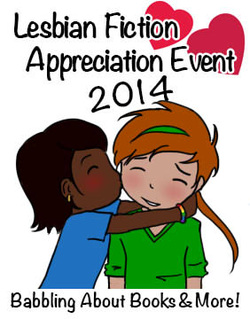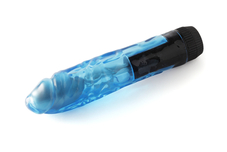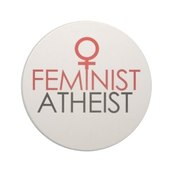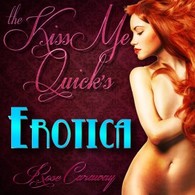
Wander on over to the site and enjoy the lovely posts, commentary, and fiction offerings for this year's event.
|
|
 I'm proud to be part of KT Grant's Lesbian Fiction Appreciation Event at kbgbabbles.com! My post, Literary Lesbianism: Heart, Mind, and Body, just went live, and I hope readers enjoy it. It was a pleasure to take the opportunity to wax poetic about the importance of lesbian fiction in my life as a pansexual cis woman, a writer, and a reader. And it's awesome that KT Grant even uses the chibi art I made for the event to address the need to show racial diversity in lesbian representation! Wander on over to the site and enjoy the lovely posts, commentary, and fiction offerings for this year's event.
1 Comment
 In an age of constant criticism and unprecedented public exposure, sex seems to be an increasingly taboo subject. It's not true everywhere of course. Many might counter that in pop culture, sex is more open and explicit than ever before. If a film like The Wolf Of Wall Street (which almost received an NC-17 rating and has been called by many "essentially a three-hour porno") can garner serious awards consideration, it's not exactly as if we're living in a culture of prudes. On the other hand, our lives are now so open to social media. Not only that, but new films, articles, and television series are telling us what to look for and appreciate in sex on a daily basis. As a result, many of us are increasingly hesitant to embrace our true desires and be more open about what sparks lust. One perfect example is the way in which many of us view sex toys—forbidden, weird, kinky, etc.—when in fact they're designed purely for pleasure. The goal of this post is not to encourage you to use sex toys if it's something you're personally uncomfortable with or averse to. That's your choice. However, if you like the idea of toys, or enjoy using them (either solo or with your partner), this brief discussion on their various benefits and uses will help you feel more confident. It's perfectly natural to use them to your heart's content. Toys Help You Learn What You Like/Need Buying a vibrator, dildo, male masturbator, or similar device isn't just about getting yourself off. Well, it can be... but it can also be about figuring out just what gets you going most! It's always good to know yourself sexually, something that will also help your relationships. Toys Can Help Sexual Stamina Stimulating yourself manually just doesn't give you the sensations of actual interaction. For that reason it's difficult to work on stamina or potency while going solo. But with certain sex toys, the sensations are so mind-blowingly real that you can actually work on things like lasting longer and reaching more satisfying orgasms. They Make Them For Couples Probably the most popularly misconceived notion about sex toys is that they're only for solo play. False! To begin with, "solo" toys can be used between partners any way you like. Additionally, sex toys and kits exist that are specifically designed for partners to use. According to Adam and Eve, there are a bevy of couples' toys out there. And on that site, they are posted with reviews and testimonials on how to use them and what impact they will have. So, if you'd like to use toys with a partner just remember: that's half the point! It's What You Like This is the bottom line: If you like using toys, you like using toys. Sexual desires are natural, and no one has any right to judge you for your own. If toys get you going, then by all means go out and find some that drive you up the wall—in a good way!  Recently, I was roaming the archives of The Thinking Atheist Podcast, and I chanced upon an April 2013 podcast featuring Greta Christina, who, among other things, is a former writer for On Our Backs—the lesbian erotica mag begun in the 80s by folks like Susie Bright and Patrick (then Pat) Califia, among many others. I’m always looking for women’s voices in atheist discourse, and too rarely finding them (or people of color, whatever their gender). But Christina didn’t just add a cis female voice to the podcast, she also linked her atheism to erotica, feminism, and LGBT issues. Because you can listen to the podcast yourself—and I recommend that you do, I don’t want to rehash, but I do want to talk about what she said that I connected with, as a bi feminist writer of pansexual erotica and Yiddish-flavored atheist. Some Background (If you don’t much want to read about my personal background, feel free to skip to the Queer Atheist Feminist Author of Erotica section below.) Before listening to Christina speak, I never thought directly about the connection between my erotic writing and my personal path to atheism. Certainly, my mostly Reform Jewish upbringing didn’t get in the way of my precocious sexuality. I studied Hebrew and went to religious school without worrying that non-marital sex or masturbation were wrong or evil, especially not in the liberal Chicago locale and era in which I was raised. Kissing girls or blowing guys might not always have been done with what I would now call a happy and healthy teen psyche (too much done for attention or to find “love” as my folks divorced), but religion was neither inspiration for rebellion nor prohibitive as I got on the pill at 17 and lucked out on never needing an abortion as many of my HS friends did. And while I didn’t fully bloom into a feminist self until my late teens, I was a strong, outgoing woman who didn’t suffer patriarchal perspectives lightly, in religion, the workplace, or beyond. Religion was just something I didn’t bother much about, well into adulthood. I knew I liked being a Jew, primarily in terms of ethnicity/culture, and I found no impetus to ponder the concept of God in depth as I made my way through college, singing in rock bands, writing fiction, acting in amateur theatrical productions, and graduate school. I was certain of what I did not believe in—i.e. Jesus-as-Savior and son of God—but that was from having been raised a Jew and always rebelling against social norms. The multiculturalism debates and the poststructuralist theory I read as a grad student definitely pushed me further, turning me into a feminist who loathed organized religion, especially proselytizing beasts such as American Christianity. I grew certain there was no God, but I didn’t shed theism absolutely. Maybe the problem was about naming and ascribing power to him, especially through literalist interpretations of the Bible, which I’d never been encouraged to read as anything but moralistic tales to guide behavior. Courses including critical religious studies helped me understand the history of the Bible as well as opening me to what one class called “Eastern Spiritual Paths.” I adored the idea of reincarnation, where—in my conceptualization at least—each of us has as many lifetimes as necessary to reach a higher state of being. For example, Dick Cheney would be reborn as a blade of grass, stepped upon over and over again; then he would be an aborted fetus; and so on. This helped me make sense of the suffering of children, among other thorny issues. But I never deeply believed it was actual. True atheism—freedom from invisible friends, magic monsters in the sky, vengeful heavenly fathers, fairies, demons, etc.—came to me slowly, through agnosticism, science, and releasing of guilt. I heard the Dalai Lama speak, telling his audience we don’t need to be Buddhist; this is not his primary concern. We need to be compassionate. I read Darwin and Dawkins and Hitchens—oh my! And, despite the white privilege and sexism, I acknowledged that I am, indeed, an atheist. Following this acknowledgement to myself and support from my spouse (who followed a path from Lutheran Christianity to agnostic to atheist, a bit slower than but similar to mine) and our son (who came to his atheism naturally, as a child unindoctrinated in religion), I have most recently trod the path of being increasingly “out” about my atheism. And that is where Greta Christina comes in. Queer Atheist Feminist Author of Erotica Because my religious upbringing was in a liberal Judaism in the suburbs of Chicago, I’ve mostly thought of my atheism as separate from other facets of my identity. The internalized patriarchal notions I lived with and through did not seem connected to religion to me; advertising and the glass ceiling did not seem at all connected to Abraham, Moses, or Jesus. But, of course, they are. Where else but the Judeo-Christian tradition and the teachings of the Hebrew Bible (a.k.a. Old Testament) do we find the treatment of women as possessions, as chattel? From Adam’s dominion over Eve and her susceptibility to talking snakes and forcing men to marry the women they rape to producing children via handmaidens and the (hyper-)masculinization of God—whose alleged omnipotence should make God far beyond gender: the Bible is a text of its era and its sexist, war-mongering shepherds. But Christina didn’t just point out the obvious here, she also talked about the links between gay and lesbian issues and atheism. Fears of ostracization for coming out remain for gay and lesbian people the world over. In the US, it may be “easier,” but not for all and not always. Nonetheless, the public presence of gay and lesbian individuals, activist groups, and support groups helps those struggling to know they are not alone. Far less so for atheists, though things are improving. (I’d link atheists with bisexuals and trans folk, where rejection may come from all sides, but again, activism, awareness, and support is out there—even if only online—and slowly growing.) This was a powerful insight for me. It not only spoke to me personally, but it helped me think about what I write and why I write. I pride myself on writing as diversely as I can within the sphere of erotica, from style and genre to orientation, race, class, and gender. And I realize that, for many, reading or writing erotica is also about resisting norms and proscriptions that come from religion. While I wrote erotica before I truly labeled myself an atheist, my writing did not truly blossom into the wild mess it is (from Godzilla sex to hard-boiled trans cops) until I shed the last vestiges of theism and the anxiety and superstition that comes with it. As I like thinking of my erotica as feminist-driven—not just sex-positive but freeing ourselves from the burden of normative social roles and behaviors, I am now beginning to enjoy thinking of it as atheist-driven as well. My characters may not all be atheist (most do not discuss their religion within the context of the tale, but several are Jewish and the protagonist of my gay romance novella series is Catholic), but their creator most certainly and happily is. And you?  Do you know Rose Caraway and her amazing erotica podcast? Don't answer that question with anything but YES because now you do. Click the image or visit http://www.thekissmequicks.com/ to get started on this addictive and professionally produced podcast, in which you'll hear the sexy Rose Caraway and the amazing Lucy Malone read from today's hottest erotic fiction. Episodes are devoted to themes, such as the recent "Halo Sex," which features songs by Nine Inch Nails and fiction by Allen Dusk, Raziel Moore, and an excerpt from the exotica quickie "Dear Doctor," by yours truly. I can't say enough about Rose's gracious, generous commentary, her delightful sexy librarian persona, and her love of all things erotic. Make it your New Year's Resolution to add The Kiss Me Quick's Podcast to your regular listening. It'll be the easiest and hottest resolution you make! |
AuthorSal and Tal are pansexual erotic writers and beings. This blog will provide information on forthcoming publications and offer various musings. Posts are by Salome unless otherwise noted. Archives
February 2016
Categories |